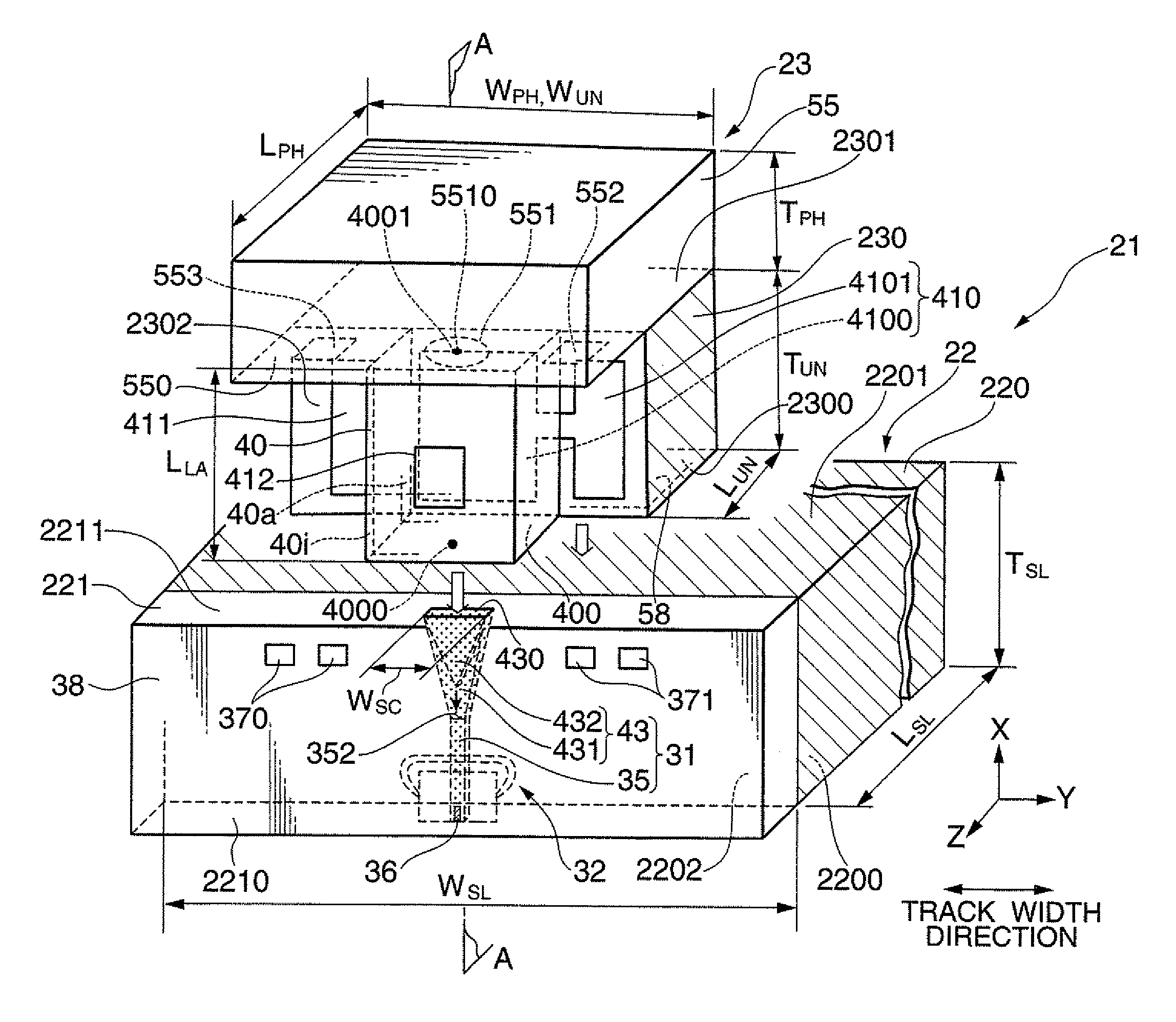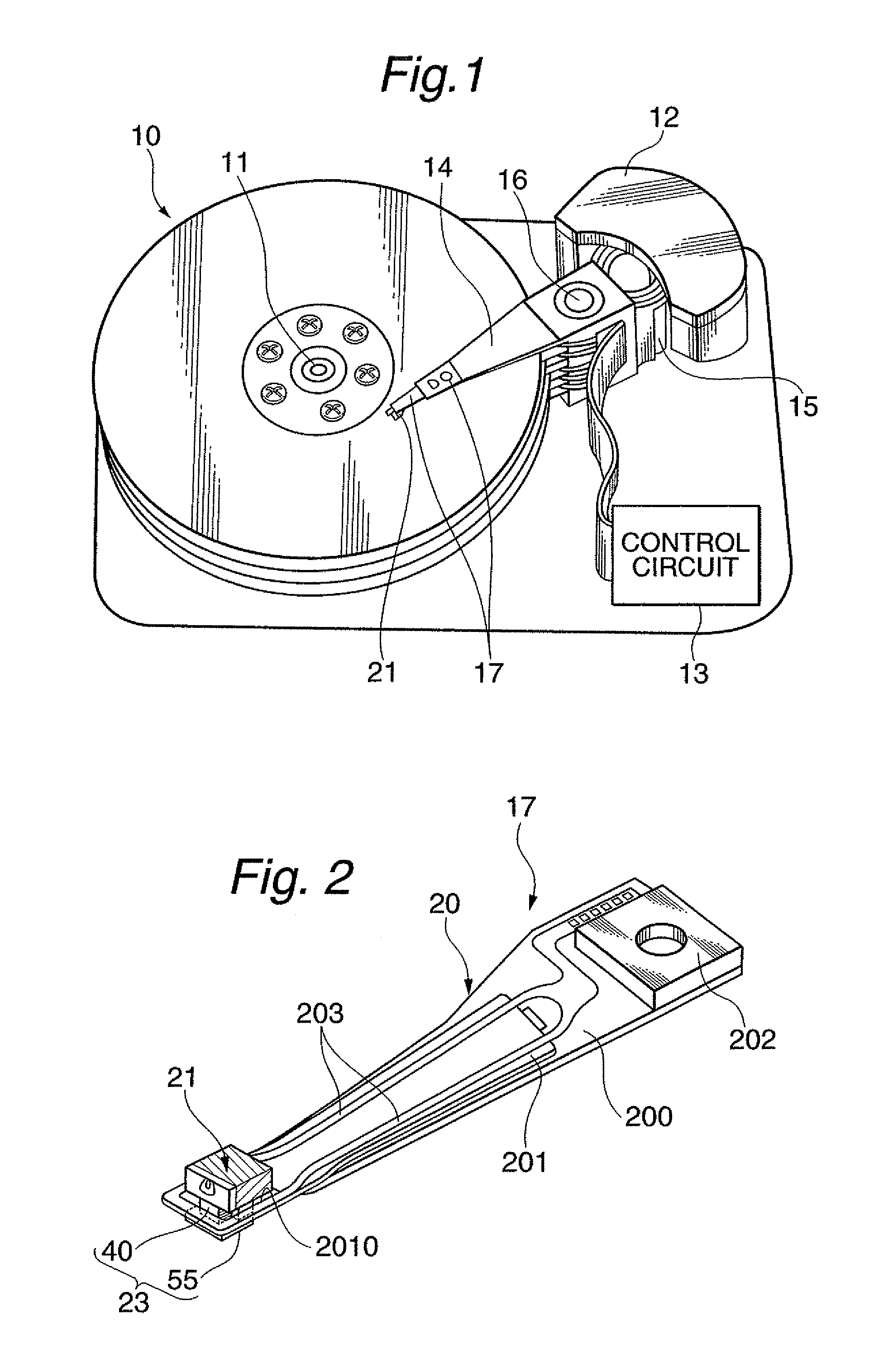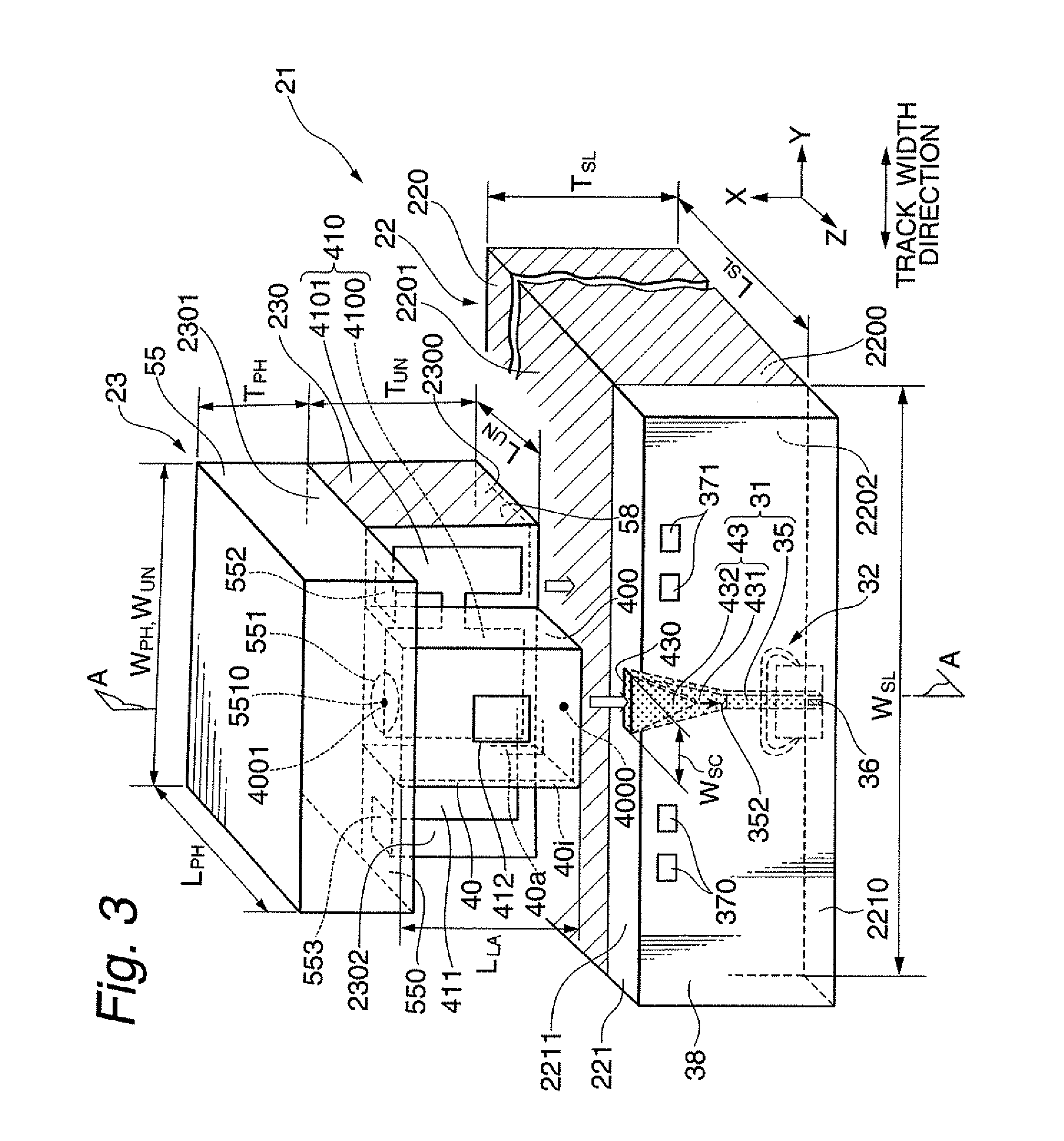Light source unit for thermally-assisted magnetic recording capable of monitoring of light output
a technology of thermally assisted magnetic recording and light output, which is applied in the direction of optical radiation measurement, instruments, mounting heads within the housing, etc., can solve the problems of difficult installation of monitoring systems, difficult to monitor the magnetic recording medium, and degradation of the thermal stability of the magnetization, so as to achieve low loss of light from the light source, high efficiency, and high efficiency
- Summary
- Abstract
- Description
- Claims
- Application Information
AI Technical Summary
Benefits of technology
Problems solved by technology
Method used
Image
Examples
Embodiment Construction
[0049]FIG. 1 shows a perspective view schematically illustrating a structure of a major part in one embodiment of a magnetic disk apparatus according to the present invention.
[0050]A magnetic disk apparatus as a magnetic recording apparatus shown in FIG. 1 includes: a plurality of magnetic disks 10 rotating around a rotational axis of a spindle motor 11; an assembly carriage device 12 provided with a plurality of drive arms 14 thereon; an HGA 17 attached on the top end portion of each drive arm 14 and provided with a thermally-assisted magnetic recording head 21; and a recording / reproducing and light-emission control circuit 13 for controlling write / read operations of the thermally-assisted magnetic recording head 21 and further for controlling the emission operation of a laser diode as a light source that generates laser light for thermally-assisted magnetic recording, based on monitoring output generated from a light detector for monitoring the output of the light source, which wi...
PUM
| Property | Measurement | Unit |
|---|---|---|
| temperatures | aaaaa | aaaaa |
| width WSC | aaaaa | aaaaa |
| thickness TSC | aaaaa | aaaaa |
Abstract
Description
Claims
Application Information
 Login to View More
Login to View More - R&D
- Intellectual Property
- Life Sciences
- Materials
- Tech Scout
- Unparalleled Data Quality
- Higher Quality Content
- 60% Fewer Hallucinations
Browse by: Latest US Patents, China's latest patents, Technical Efficacy Thesaurus, Application Domain, Technology Topic, Popular Technical Reports.
© 2025 PatSnap. All rights reserved.Legal|Privacy policy|Modern Slavery Act Transparency Statement|Sitemap|About US| Contact US: help@patsnap.com



